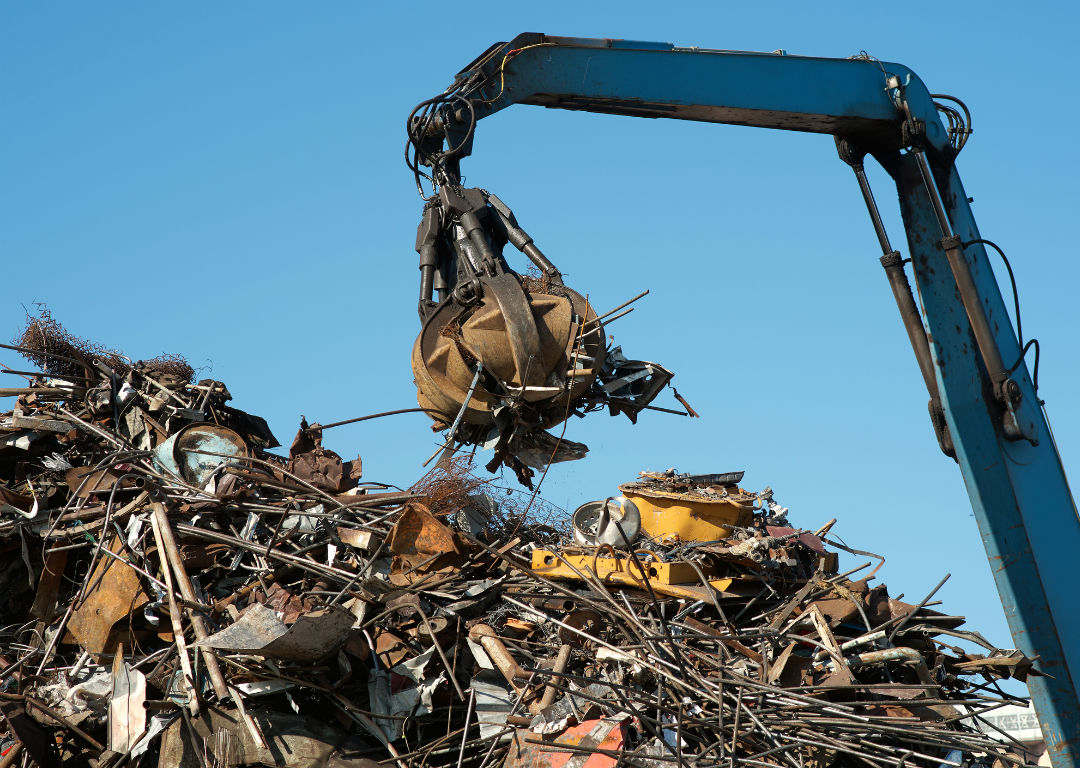

SEP 27, 2023
At a time of increasing environmental consciousness and sustainable living, scrap metal recycling is an invaluable way of contributing to ecological well-being and economic expansion. This practice has blossomed into an expansive billion-dollar industry and is now considered an integral component of responsible resource management. RCM Recycling explores its profound effect on economic well-being and the integral roles of scrap metal buyers and companies during this crucial process.
Scrap metal recycling is an intricate industry encompassing the collection, processing, and reuse of metallic scrap. Most commonly recycled are steel, aluminum, copper, and brass, among others. This process typically starts by gathering scrap metal from various sources like old appliances, automobiles, construction sites, or manufacturing plants for transport to specialized facilities, where it undergoes sorting, cleaning, and processing to eliminate impurities or contaminants that have contaminated it in any way.
Scrap metal recycling offers numerous economic advantages that are both immediate and long-term. Recycling metal conserves resources by decreasing raw material extraction needs; when we recycle metals, we decrease demand for mining operations, thereby protecting natural environments such as habitats and landscapes. Furthermore, energy savings achieved from recycling are substantial; aluminum recycling alone takes only approximately five percent of the energy required by raw material production to complete. This efficiency reduces production costs, contributing to its economic viability overall.
Scrap metal buyers in Forsyth play an essential part in recycling operations. These individuals and entities purchase scrap metal from various sources - individuals, businesses, and industrial facilities. Their participation ensures a steady influx of recyclable materials into the industry - essential in upholding economic sustainability across its ecosystem.
Scrap metal buyers usually operate both large and small scale. Smaller buyers might purchase scrap from individuals or local businesses, while larger entities might contract with industrial partners for extensive purchasing agreements. No matter their scale of operation, scrap metal buyers act as intermediaries between scrap suppliers and recycling companies.
Scrap metal buyers play an essential part in local economies by providing income-generating opportunities for individuals and businesses looking to dispose of scrap metal responsibly - helping reduce waste while injecting funds back into communities for reuse, creating a win-win scenario for all stakeholders involved.
Scrap metal companies are at the core of recycling industries worldwide. Specializing in collecting, processing, and selling recycled metals makes these organizations integral components of recycling ecosystems like manufacturing plants or construction companies that depend on recycled material. They act as intermediaries between buyers of scrap metal and end users such as manufacturing facilities that rely heavily on these recycled resources - acting as links between recycling buyers and end-users such as end users for end-use products that depend on recycled metals such as manufacturing or construction companies who require recycled products as building material sources.
One of the primary functions of scrap metal companies is to efficiently process and prepare scrap metal for reuse, often through shredding, melting, refining, or refining processes that meet industry quality standards. They utilize cutting-edge technologies and employ skilled staff members in this endeavor to guarantee that recycled metal meets these stringent quality requirements.
Scrap metal companies make significant contributions to the economy through job creation. Their workforce ranges from truck drivers and equipment operators through metallurgists and salespeople to truck metallurgists - directly translating to increased employment opportunities supporting economic stability and prosperity.
The scrap metal recycling industry displays an outstanding example of environmental protection and economic expansion through diversion from landfills or incineration of scrap. By diverting scrap from being wasted into landfills or burned, we reduce environmental strain and foster economic activities - this cycle extends across our economy's manufacturing, construction, and transport sectors.
Manufacturers benefit from an ample supply of top-grade recycled metals that are more cost-effective than virgin materials and thus facilitate industrial growth at more competitive prices. Furthermore, reduced energy usage associated with recycling helps lower production costs, enhancing its economic effect.
Construction industry stakeholders also see significant advantages from recycling metals for building projects and infrastructure development, particularly steel and aluminum recycling, which meets stringent structural requirements while contributing to environmentally responsible building practices. Thus, recycled steel and aluminum benefit economic development while cost savings spur greater demand.
Transportation, another cornerstone of our economy, reaps the rewards from scrap metal recycling through fuel-efficient and eco-friendly vehicle production. Recycled aluminum and steel offer lightweight properties that enable manufacturing vehicles with greater fuel efficiency - helping lower greenhouse gas emissions while decreasing operational costs for consumers.
At RCM Recycling, we take great pride in being your reliable partner for scrap metal recycling services. Our scrap metal company strives to offer comprehensive solutions tailored specifically for meeting each of our customers' recycling needs; whether an individual looking to responsibly dispose of scrap metal or businesses looking for efficient recycling options - RCM Recycling offers services designed to make the process of recycling simpler than ever!